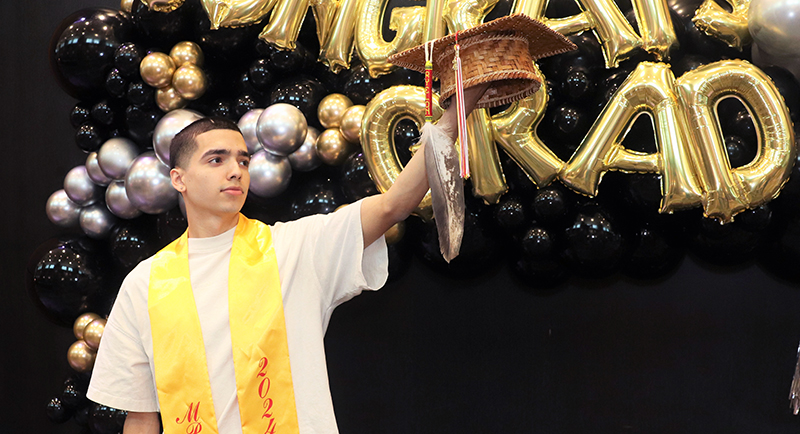
By Micheal Rios, Tulalip News
On the evening of Tuesday, June 11, the Tulalip Tribes hosted a memorable banquet in the resort’s Orca Ballroom for eighty-two recently graduated high schoolers. The graduates, a combination of Tulalips and other Natives from within Marysville School District, were surrounded by friends and family in the Four-Diamond setting, making for an ideal setting to celebrate their latest rite of passage – reclaiming their educational future.
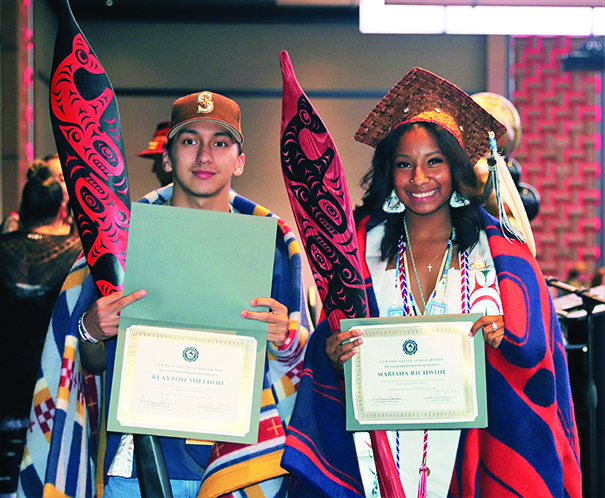
Tulalip boy and girl of the year winners.
This latest crop of graduates is part of a generational movement comprised of Native students desiring to reclaim their educational futures by achieving academic success enroute to earning their high school diplomas. Historically, Native communities like Tulalip have faced systemic barriers in education, including underfunded schools, cultural insensitivity, and policies that aimed to assimilate rather than celebrate their heritage. However, through perseverance, community support, and inclusive initiatives, our Tulalip students are increasingly crossing the high school finish line, an accomplishment that can significantly impact the trajectory of their personal and collective futures.
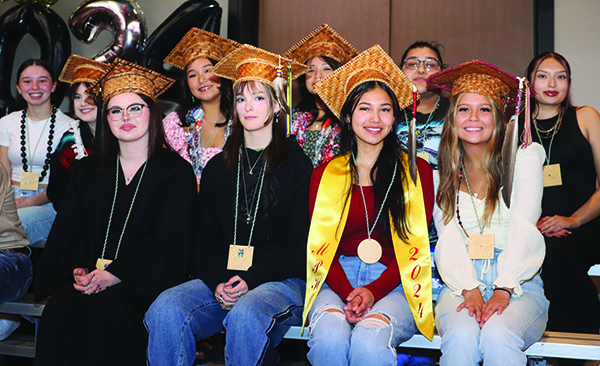
“I want to start by thanking all of the parents, families, and members of our education team for being here and bringing their good energy into this space so we can uplift our graduates,” said Director of Education, Jessica Bustad. “We are so grateful to have an education division made up of seven different departments full of team members who put their hearts into all the work that they do to support our community’s youth.
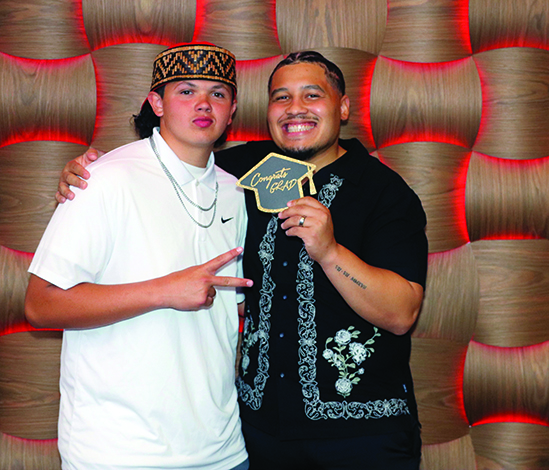
“Coming together as a community to honor all our Native graduates is one of the most important things we can do. Our graduates are a true reflection of resilience, dedication, and perseverance. As we are spiritual beings in this human experience, it is important we honor our roots. Our ancestors laid a strong foundation so that we could be here today. We honor them by being proud of where we come from and doing all that we can to reclaim, revitalize, and preserve the way of life our ancestors sacrificed so much for. In being intentional about this work, our people ensure that they always show up as their best selves.”
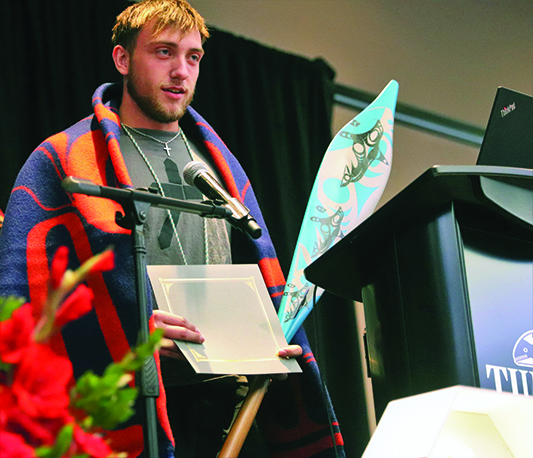
For many Native students, graduating high school is not just an academic achievement but a reclaiming of their identity and heritage. Education systems have often sought to erase Native cultures, most infamously through boarding schools where Native children were forbidden and often punished from speaking their traditional languages and practicing their traditions.
Today, Native students and their communities are reversing this trend by integrating cultural education into their learning experiences, such as what’s been achieved within Tulalip’s Early Learning Academy, Quil Ceda Elementary and Heritage High School. Marysville School District has aided the cultural integration movement by offering Tulalip’s ancestral language, Lushootseed, as an elective class taught within certain schools. Schools that offer Native language courses and culturally relevant extracurricular activities help students see their education as an extension of their cultural identity, not a replacement for it.
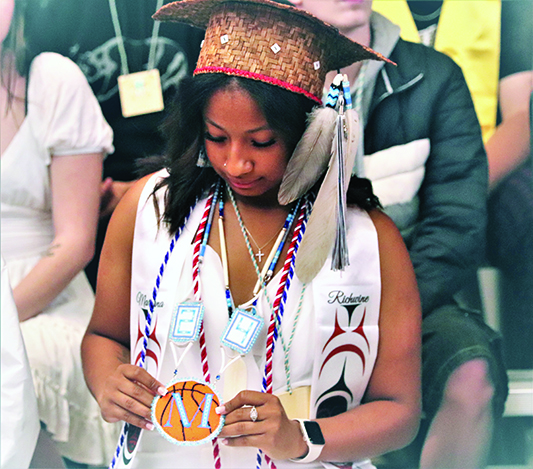
“We have been dreamt into existence,” explained banquet keynote speaker, Gene Tagaban (Tlingit, Raven Clan). “There was a time they didn’t want us as Native people to even be born, yet here you are. You made it through birth. You made it through elementary. You made it through middle school. You made it though high school, and now you are graduating. That is the power of our ancestors who dreamt and prayed for the resiliency of their future generations, which is you all in this room today. Each and every one of you have been dreamt into existence.”
Community involvement continues to play a crucial role in supporting our high school students as they seek diplomas to broaden their future pathways. Tribal leaders, elders, and parents are increasingly active in school boards and educational planning, ensuring that the curriculum and school policies reflect and respect their cultural values. Mentorship programs that connect students with Native professionals, like what is implemented through Heritage’s ‘big picture learning’, provide local role models to reinforce the idea that academic success and cultural pride can fuse a career ladder’s foundation.
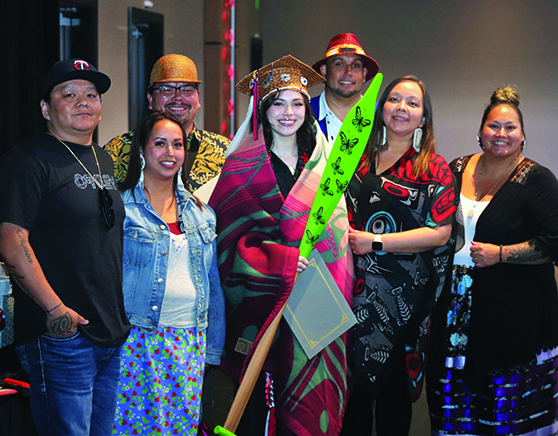
Indian Education Parent Committee scholarship awardee Kamaya Craig embodies that professional and cultural fusion in a way that dismantles the misbegotten narrative that Natives can’t thrive in the academic setting. Her father Dr. Anthony Craig is a professor at the University of Washington and her mother Chelsea Craig is a vice principal at Quil Ceda Elementary. Together, they’ve raised a daughter who graduated high school with an astounding 3.7 GPA, but more than that she intends on following in her parents’ footsteps and decolonizing local education systems from within.
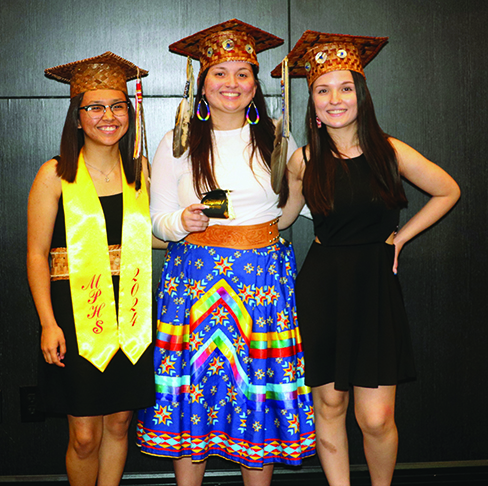
“I plan on furthering my education at Evergreen State College where I will join the Native Pathways program and pursue a degree in education,” shared the inspirational 18-year-old, Kamaya. “I am passionate about creating curriculum where our Tulalip students can learn about our actual Tulalip elders and past ancestors. There is so much wisdom and cultural grounding we can learn from our own people, it just needs to be made accessible to the younger generation. I’d love to be a part of making this happen.”
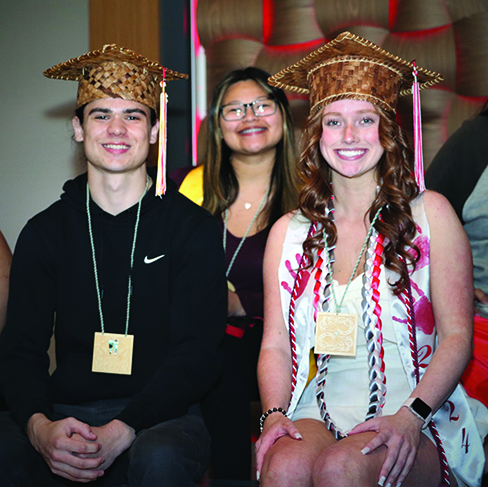
When asked what she thinks of those who continue to push the narrative our people can’t succeed in the classroom or on the college level, she responded, “It’s imperative that we decolonize these education systems from within. In order to accomplish this, we need our people to get educated. I love learning and want to see our future generations learn all the things so they can find their true passion, whatever it may be.”
The impact of increasing high school graduation rates among Native students extends beyond individual success. Like Kamaya and her fellow young Tulalip matriarch Mariana Richwine, who will be attending Lesley University in Massachusetts in pursuit of a criminal justice degree, educated Natives are more likely to return to their communities and contribute to cultural preservation, economic development and positive health outcomes for their people. They become advocates for their people, using their voices to influence policy and career pathways previously thought unattainable.
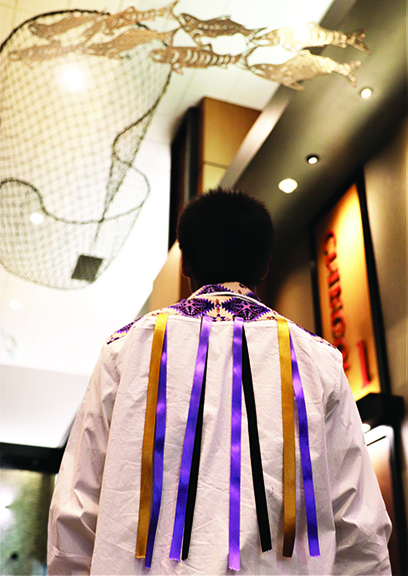
To recap, the graduation banquet for the class of 2024 was a celebration of being dreamt into existence by their ancestors, and a recognition of the significant importance high school diplomas have become for our inspiring youth leaders. They aren’t just a piece of paper, they are a symbolic cornerstone for community empowerment and self-determination.